An editor has performed a search and found that sufficient sources exist to establish the subject's notability.(December 2020) |
Niqula Haddad was a Syrian Socialist, and was brother in law to Farah Antun.
An editor has performed a search and found that sufficient sources exist to establish the subject's notability.(December 2020) |
Niqula Haddad was a Syrian Socialist, and was brother in law to Farah Antun.
Niqula Haddad was born into an orthodox family in 1870. [1]
Haddad went to the American secondary school at Sidon, and later studied pharmacy at the Syrian Protestant College in Beirut, as a pharmacist. [1]
Sometime after 1900, Haddad would move to Egypt and marry Farah Antun's sister, Ruza. [2] Later on, he would work for his brother in law on his journal, al-Jami'ah, in New York. After the failure of the journal, Haddad would go back to Egypt and continue his writing career there, and would eventually write a ladies' magazine, al-Sayyidat, from 1948 to 1950. Sometime around the magazine, he was also editing for the magazine al-Muqtataf. In 1906 he published a novel Hawa al-Jadida aw Yvonne Monar (The New Eve, or Yvonne Monar) [1] [3]
Like some other prominent socialists, Haddad believed in a planned economy, and pointed to the Egyptian governments' control over utilities like railroads and telephones as evidence for the plausibility of such a thing. Haddad believed the implementation of socialism should be through democratic means, where a socialist party educates the people sufficiently to win power in the government and implement socialist policies. [1]
Niqula Haddad died in 1954. [1]
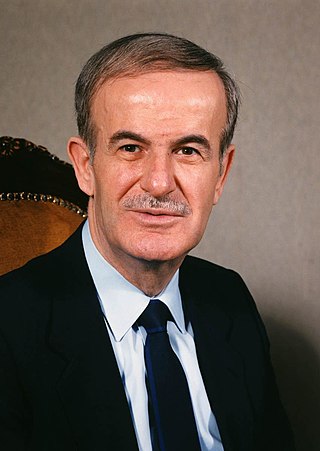
Hafez al-Assad was a Syrian statesman, military officer and revolutionary who served as the 18th president of Syria from 1971 until his death in 2000. He had previously served as prime minister of Syria from 1970 to 1971 as well as regional secretary of the regional command of the Syrian regional branch of the Arab Socialist Ba'ath Party and secretary general of the National Command of the Ba'ath Party from 1970 to 2000. Hafez al-Assad was a key participant in the 1963 Syrian coup d'état, which brought the Syrian regional branch of the Arab Socialist Ba'ath Party to power in the country.

The Arab Socialist Baʿth Party, also anglicized as Ba'ath in loose transcription, with baʿth meaning resurrection, was a political party founded in Syria by Mishel ʿAflaq, Ṣalāḥ al-Dīn al-Bīṭār, and associates of Zakī al-ʾArsūzī. The party espoused Baʿathism, which is an ideology mixing Arab nationalist, pan-Arab, Arab socialist, and anti-imperialist interests. Baʿthism calls for the unification of the Arab world into a single state. Its motto, "Unity, Liberty, Socialism", refers to Arab unity, and freedom from non-Arab control and interference.
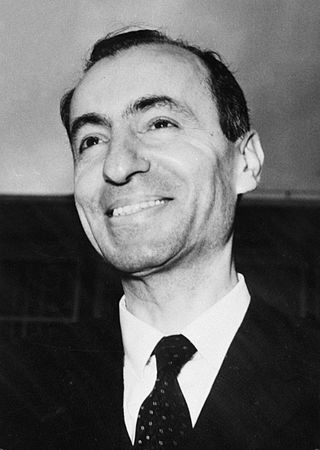
Michel Aflaq was a Syrian philosopher, sociologist and Arab nationalist. His ideas played a significant role in the development of Ba'athism and its political movement; he is considered by several Ba'athists to be the principal founder of Ba'athist thought. He published various books during his lifetime, such as "The Road to Renaissance" (1940), The Battle for One Destiny (1958) and The Struggle Against Distorting the Movement of Arab Revolution (1975).
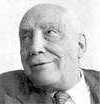
Salama Moussa was an Egyptian journalist, writer and political theorist. Salama Moussa was an avowed secularist, he introduced the writings of Darwin, Nietzsche, and Freud to Egyptian readers. Salama Moussa campaigned against traditional religions and urged the Egyptian society to embrace European thought, he espoused the theory of evolution by natural selection. He was an Egyptian nationalist. He was an advocate of liberalism and a supporter of the Egyptian liberal movement. Salama Moussa is from Taha Hussein's generation; Naguib Mahfouz called Salama Moussa his "spiritual father", whereas Salama Moussa acknowledged his own intellectual debt to Ahmed Lutfi el-Sayed. Salama Moussa joined al-Wafd party after Saad Zaghloul became the leader, he believed it to be essentially a call to independence. He looked for political and economic independence of Egypt from the British occupation. He popularised the idea of socialism in Egypt and advocated egalitarian socialism. He was jailed in 1946 for criticizing the monarchy. Salama Moussa emphasized the unity of the Egyptians, he praised Ahmed Lutfi el-Sayed for "paving the way for the revolution of 1919 by uniting the Egyptian nation on a national stance".
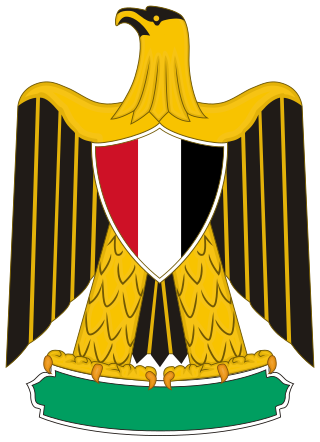
Nasserism is an Arab nationalist and Arab socialist political ideology based on the thinking of Gamal Abdel Nasser, one of the two principal leaders of the Egyptian Revolution of 1952, and Egypt's second President. Spanning the domestic and international spheres, it combines elements of Arab socialism, republicanism, secularism, nationalism, anti-imperialism, developing world solidarity, Pan-Arabism, and international non-alignment. According to Mohamed Hassanein Heikal, Nasserism symbolised "the direction of liberation, socialist transformation, the people’s control of their own resources, and the democracy of the peoples working forces."
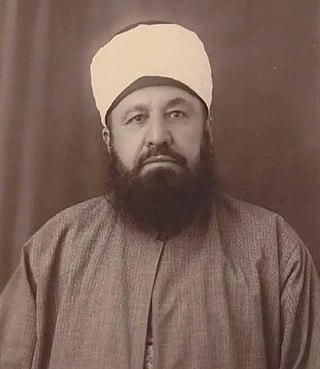
Muhammad Rashid Rida was an Islamic scholar, reformer, theologian and revivalist. An early Salafist, Rida called for the revival of hadith studies and, as a theoretician of an Islamic state, condemned the rising currents of secularism and nationalism across the Islamic world following the abolition of the Ottoman sultanate. He championed a global pan-Islamist program aimed at re-establishing an Islamic caliphate.
Islamic revival refers to a revival of the Islamic religion, usually centered around enforcing sharia. A leader of a revival is known in Islam as a mujaddid.

'Abd al-Rahman al-Kawakibi was a Syrian author and Pan-Arab solidarity supporter. He was one of the most prominent intellectuals of his time; however, his thoughts and writings continue to be relevant to the issues of Islamic identity and Pan-Arabism. His criticisms of the Ottoman Empire eventually led to Arabs calling for the sovereignty of the Arab Nations, setting the basis for Pan-Arab nationalism. Al-Kawakibi articulated his ideas in two influential books, The nature of tyranny and the struggle against slavery and Mother of All Villages. He died in 1902 of “mysterious” causes. His family alleged that he was poisoned by Turkish agents.
Mass media in Egypt are highly influential in Egypt and in the Arab World, attributed to its large audience and its historical TV and film industry supplies to the Arab-speaking world.

Sayyid Ibrahim Husayn Shadhili Qutb was an Egyptian political theorist and revolutionary who was a leading member of the Muslim Brotherhood. He is dubbed the "father of Salafi jihadism", the religio-political doctrine that underpins the ideological roots of global jihadist organisations such as al-Qaeda and ISIL.

The Revolutionary Socialists (RS) are a Trotskyist organisation in Egypt originating in the tradition of 'Socialism from Below'. Leading RS members include sociologist Sameh Naguib. The organisation produces a newspaper called The Socialist.
Farah Antun, also spelled Farah Antoun, was among the first Lebanese Christians to openly argue for secularism and equality regardless of religious affiliation. He also, though uncommon for his background, argued against Arab nationalism. Antun became popular for his magazine, Al Jamiah, and his public debate with Muhammad Abduh over conflicting worldviews.

Munif al-Razzaz was a Jordanian-Syrian physician and politician who was the second, and last, Secretary General of the National Command of the Arab Socialist Ba'ath Party, having been elected to the post at the 8th National Congress held in April 1965.

The Arab Nationalist Movement, also known as the Movement of Arab Nationalists and the Harakiyyin, was a pan-Arab nationalist organization influential in much of the Arab world, particularly within the Palestinian movement. It was first established in the 1950s by George Habash with the primary focus on Arab Unity.

Arab socialism is a political ideology based on the combination of pan-Arabism and socialism. Arab socialism is distinct from the much broader tradition of socialist thought in the Arab world, which predates Arab socialism by as much as fifty years. The term "Arab socialism" was coined by Michel Aflaq, the principal founder of Ba'athism and the Arab Socialist Ba'ath Party in Syria, in order to distinguish his version of socialist ideology from the international socialist movement.

Ba'athism, also spelled Baathism, is an Arab nationalist ideology which promotes the creation and development of a unified Arab state through the leadership of a vanguard party over a socialist revolutionary government. The ideology is officially based on the theories of the Syrian intellectuals Michel Aflaq, Zaki al-Arsuzi, and Salah al-Din al-Bitar. Ba'athist leaders of the modern era include the former president of Iraq Saddam Hussein, former president of Syria Hafez al-Assad, and his son, the current president of Syria, Bashar al-Assad.
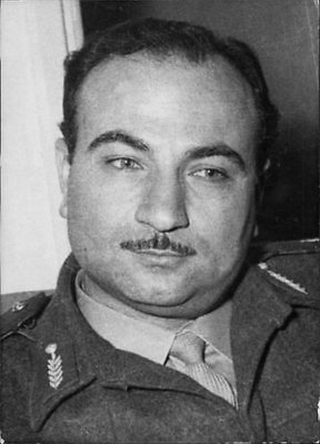
Mohammed Ziad al-Hariri is a former prominent Syrian Army officer. A staunch Arab nationalist, he supported the union between Syria and Egypt in 1958, opposed Syria's secession from it in 1961 and served as the chief leader of the coup d'état that toppled the secessionist government in March 1963. Politically independent from the Nasserists and their Ba'athist rivals, Hariri served as the army's chief of staff following the coup and was briefly defense minister until being dismissed during a wide-scale purge of non-Ba'athists from the military. He retired from political activity soon afterward.
Islamic socialism is a political philosophy that incorporates Islamic principles into socialism. As a term, it was coined by various Muslim leaders to describe a more spiritual form of socialism. Islamic socialists believe that the teachings of the Qur'an and Muhammad—especially the zakat—are not only compatible with principles of socialism, but also very supportive of them. They draw inspiration from the early Medinan welfare state established by Muhammad. Muslim socialists found their roots in anti-imperialism. This can especially be seen in the writings of Salama Moussa, who wrote extensively both about socialism, and about Egyptian nationalism against British rule.
The Syrian coup d'état of 1961 was an uprising by disgruntled Syrian Army officers on 28 September 1961, that resulted in the break-up of the United Arab Republic and the restoration of an independent Syrian Republic.

Before the outbreak of the First World War, scholars of the Arab Salafiyya movement represented the leading voice of Islamic religious dissent within the Ottoman Empire. Their most influential theologian Muhammad Rashid Rida, an ardent critic of Abdul Hamid II and Turkish nationalism, regarded Ottoman kings as unqualified to rule over the affairs of the Muslim World. While excoriating the Ottomans as an artificial caliphate based on unjust wars and conquests; Salafi scholars nonetheless strongly forbade rebellion against the Ottoman authority due to their insight of dangers posed by the expanding European colonialism. Rashid Rida and his pupils perceived the Ottoman state as an essential entity for allowing Muslims to successfully repel European imperial powers and rebuked the proponents for an alternative Caliphate; suspecting them of serving the aims of imperial powers. All of this changed with the Ottoman entry into World War 1 in October 1914, on the side of the Central Powers. Rashid Rida viewed the war as part of the secular Turkish nationalist programme of the Young Turks, a faction he vehemently denounced as murtadd (apostates).